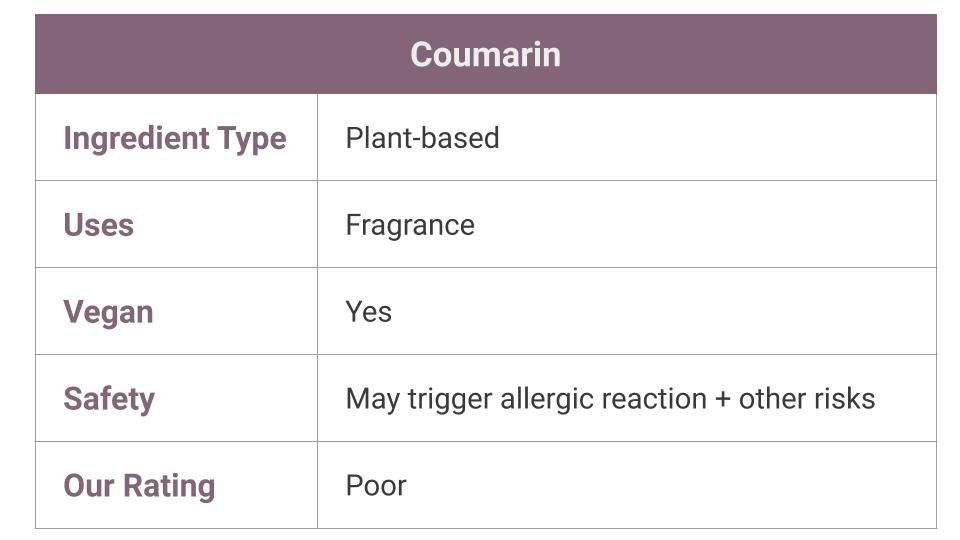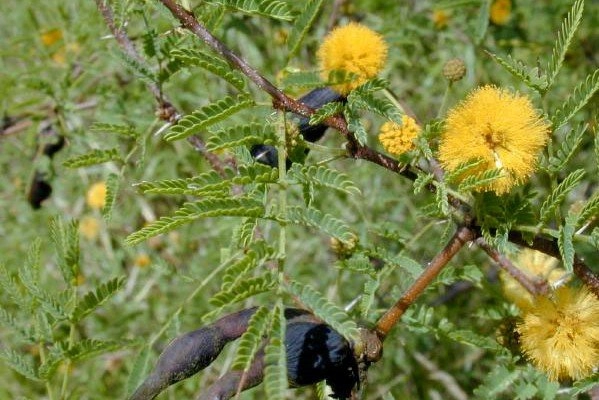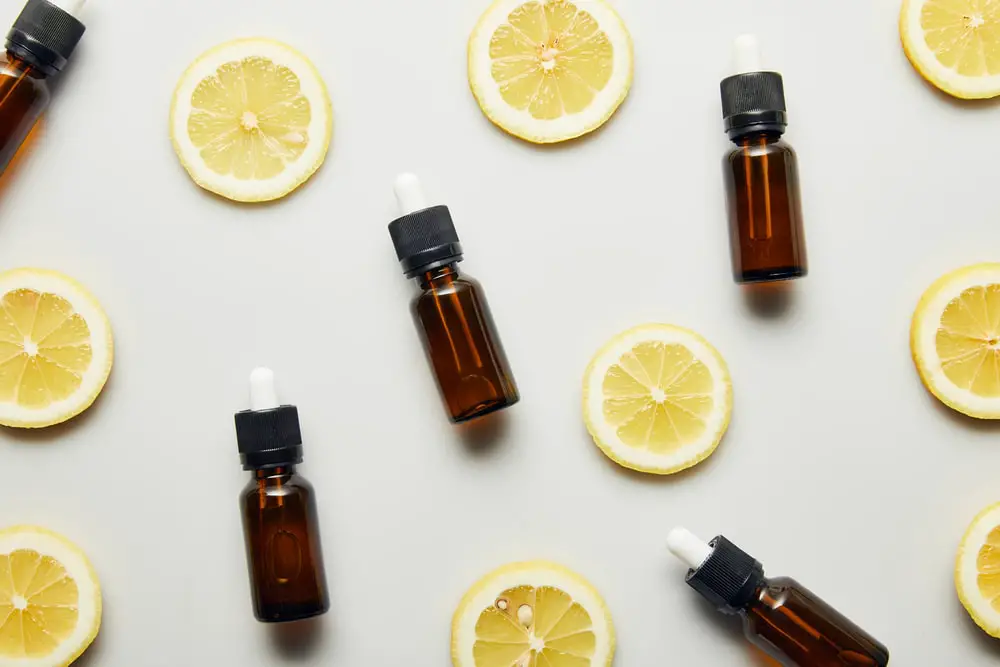Did you know that chefs are illegally smuggling in coumarin for its unique sweet flavor? Even Michelin starred chefs having been sneaking this ingredient into their dishes. It has been banned by the FDA for over 60 years.
This post may contain affiliate links. Read the full disclosure here
This was based on a study that found that coumarin, the flavor compound in tonka beans, was leading to hepatotoxicity in dogs and rats. In other words, it is moderately toxic to the liver and kidneys when consumed. While you most likely won’t consume enough tonka beans or cinnamon to reach levels of concern, this is what triggered the FDA ban.
So if the FDA is concerned about this ingredient in food, should we be concerned when we see coumarin in cosmetics or skincare? Let’s take a deeper look.

What is Coumarin?
Coumarin is found in tonka beans, cassia cinnamon, vanilla grass, and many other plants. It’s thought to serve as a chemical defense in plants to protect them against predators. It naturally has a sweet, nutty, vanilla scent. However, when it’s diluted it is often compared to smelling like freshly-mown hay.
This sweet scent is the main reason coumarin is included as an ingredient in skincare and cosmetics products. Coumarin doesn’t provide any direct benefits to skincare products, but rather is added as a fragrance. That’s it.
Is Coumarin Bad for Skin?
With all the concerns and risks of consuming coumarin, you might be wondering if it’s safe to use topically. Since this ingredient absorbs directly into the skin, it does pose a risk. However, the concentration of this ingredient is what is important to understand. If the coumarin concentration is high enough, there may be risk liver damage and/or triggering allergies for those with sensitive skin. Many have also warned that products with this ingredient aren’t safe for children or pregnant women.
Coumarin is also listed as one of 26 ingredients that is known to cause allergies in perfume by the European Commission. You may know some of the other ingredients on this list such as Benzyl salicylate, Geraniol, Coumarin, Limonene, and Linalool. This ingredient poses a potential health risk and it can lead to an allergic reaction.
Since the ingredient doesn’t offer any benefits beyond smelling nice, we recommend avoiding this ingredient for use in skincare, cosmetics, and personal care. It’s just not worth the risk.
What Products Use Coumarin?
Coumarin is super common in fragrances for women. But you’ll also find it in moisturizers, shampoos, cleansers, and serums. For cosmetics, you’ll see it in foundation, bronzer, lipstick, and eye shadow.
The brands that use this ingredient are HUGE and people love the products too. This goes back to the concentration levels of the ingredient. Any product that uses trace amounts of coumarin may not cause you any trouble, but it’s important to keep an eye on any item with coumarin lists as an ingredient.
Is Coumarin Vegan?
Yes, coumarin occurs naturally in plants. This compound can be sourced from plant-based ingredients, so there isn’t a concern to those adverse to animal-based products. However, if you are averse to allergies liver risks, you still might want to avoid this particular ingredient.
Also Known As
You may also find coumarin under the following names on ingredients labels:
- 2H-1-BENZOPYRAN-2-ONE
- 2H1BENZOPYRAN2ONE
- TONKA BEAN CAMPHOR
Ingredients To Avoid
Ingredients that offer limited skin benefits, don’t improve effectiveness, or pose risks to your health (even though they may be low) just aren’t worth it. When we come across ingredients such as coumarin, we put that in our ingredients to avoid list. You find a lot of fragrances on this list. Having a beautiful fresh scent can certainly improve the experience of a product, but it’s not worth the risk of triggering an allergy or a greater concern. When in doubt, leave it out!
We find ourselves riding the line of simplicity (using few, natural ingredients) and science (synthetic ingredients with proven results). This is generally where the magic happens with skincare products. Eliminate all the fluff and keep the core ingredients that make the product better.





